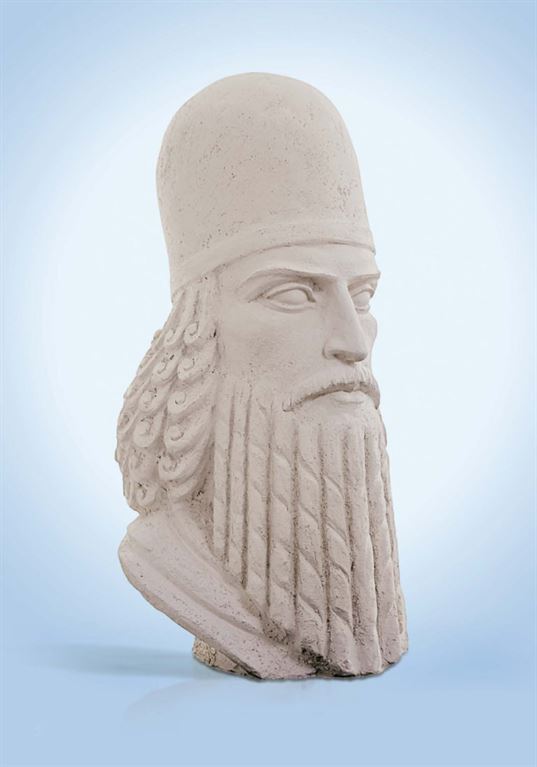Zoroaster. 2005. Chamotte.
Author: Alexey Leonov
Material: Shamotte
Location: Private collection
Size: 64,5 х 35 х 37
The most respected teacher of the Middle East, Zoroaster (about 628-551 AD) preached truths very close to the Christian world, which were expressed by sending goodness to the world at the level of thought, word and deed. The religious reformer laid the foundations for the moral development of the entire region through the commandment: “Let the one who wishes happiness for others be happy.”
According to the teachings of Zoroaster, light is the presence of God in the manifested material world. Zoroastrians turn their face to the light as to God. Followers of Zoroaster worship fire as the most important and accessible source of light and heat to man since ancient times. Zoroastrianism introduces the concept of a posthumous judgment – a calculation of deeds committed in life. If a person’s good deeds outweighed the evil ones even by a hair, the yazats (angels) lead the soul to the House of Songs. If evil deeds prevailed, the soul is taken to hell by the Visaresha devas (devas of death). The prophet’s sermon had a brightly expressed ethical character, condemned violence, praised peace between people, honesty and creative work, and stated faith in the One God (Ahura).




